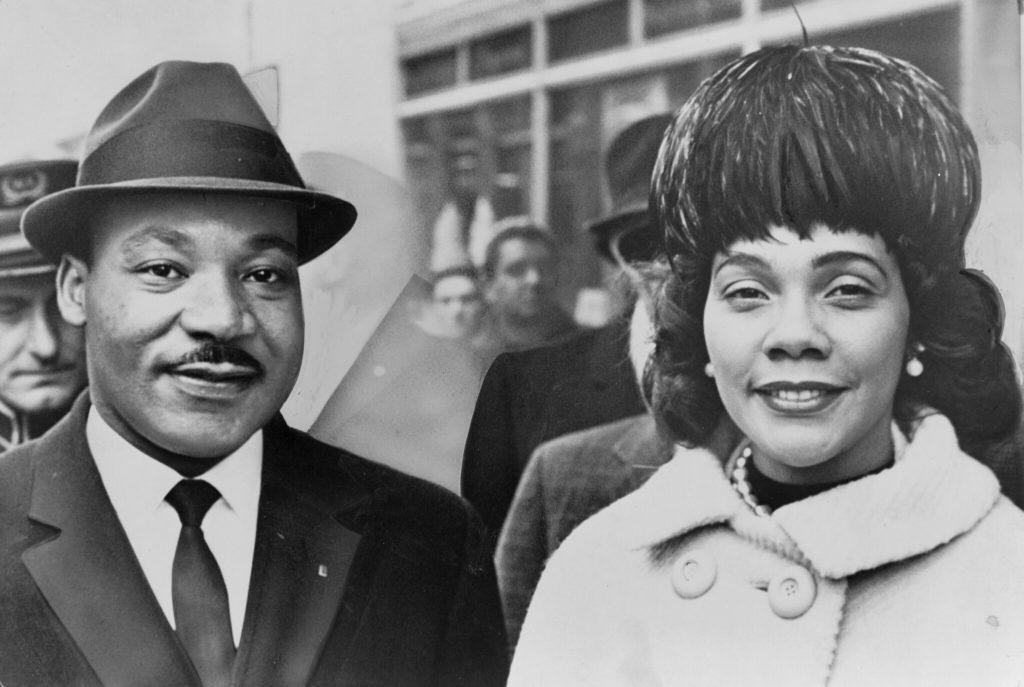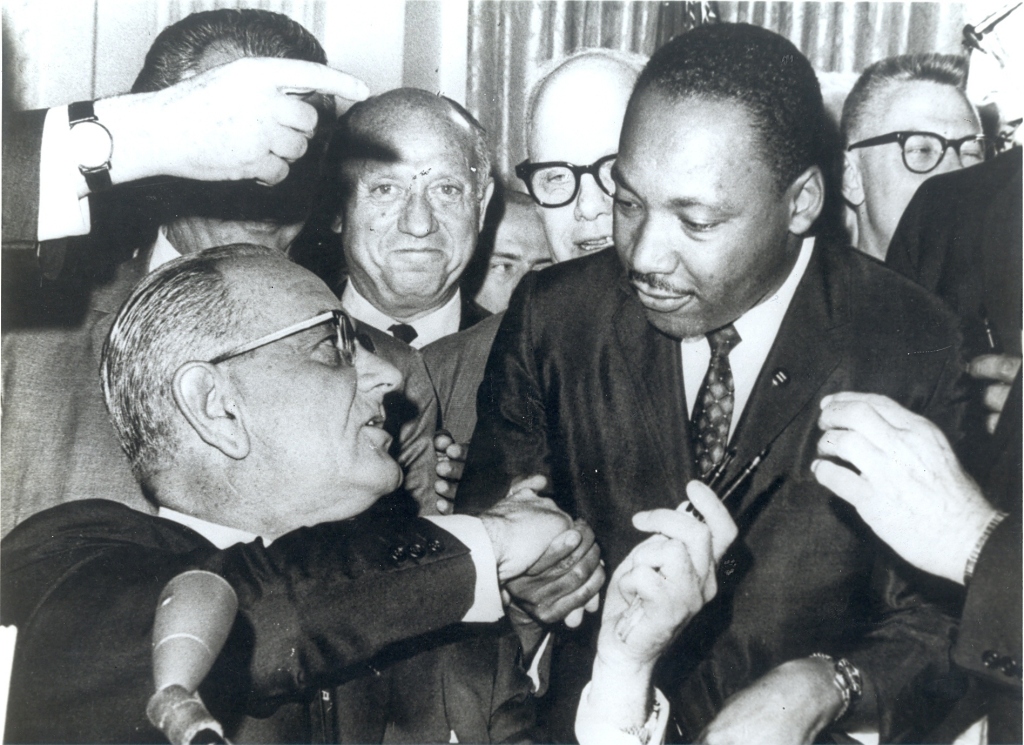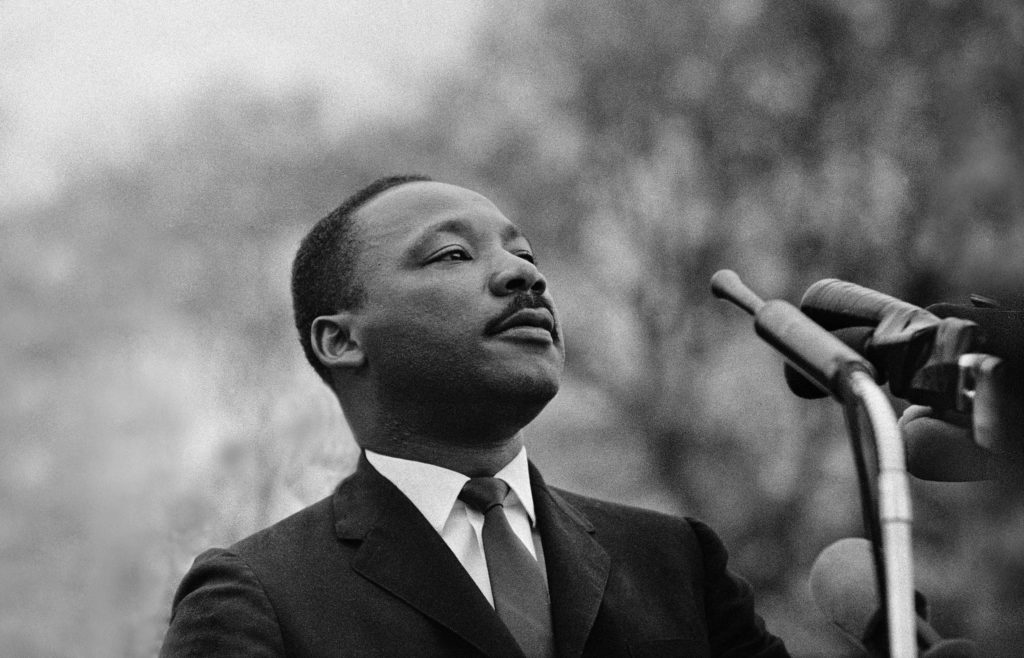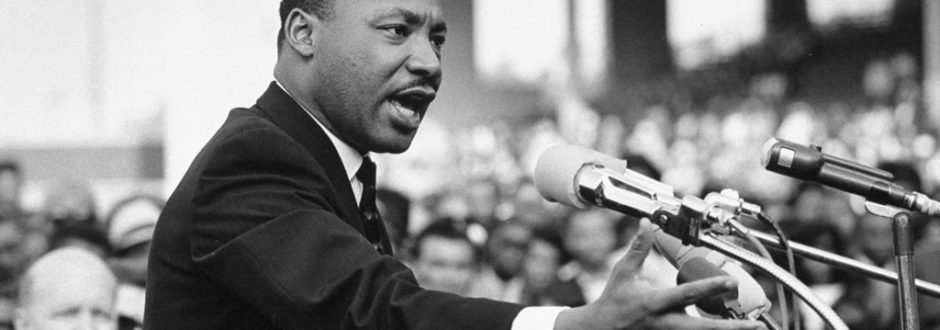There is perhaps no greater, more challenging task a believer faces than learning how to love our enemies. One of Jesus’ most cited commands*, it’s a concept that we’re likely well familiar with: to love our enemies is to extend the same mercy and grace that our beloved Father has shown us.
In practice, however, it becomes exceedingly difficult to implement, challenging us to overcome our inherent desire for retribution and revenge with a purity and grace that seems more well-suited for a heavenly, divine people.
Yet, as Martin Luther King, Jr. – arguably one of the greatest advocates and practitioners of loving your enemies – once said:
“Far from being the pious injunction of a utopian dreamer, this command is an absolute necessity for the survival of our civilization. Yes, it is love that will save our world and our civilization, love even for enemies.”
In a sermon delivered at Dexter Avenue Baptist Church in Montgomery, Alabama in November 1957 — as transcribed in A Knock at Midnight (1998), a collection of MLK’s 11 most powerful sermons — King offers practical tips for how to go about loving our enemies.
It is essential to do so, he argues, because:
“Jesus was very serious when he gave this command; he wasn’t playing. He realized that it’s hard to love your enemies. He realized that it’s difficult to love those persons who seek to defeat you, those persons who say evil things about you.”
But, he goes on, “We have the Christian and moral responsibility to discover the meaning of these words, and to discover how we can live out this command…”
So, how can we go about loving our enemies?

1. We can begin with self-reflection and self-awareness:
“In order to love your enemies, you must begin by analyzing [your]self…[w]e must face the fact that an individual might dislike us because of something that we’ve done deep down in the past, some personality attribute that we possess, something that we’ve done deep down in the past and we’ve forgotten about it; but it was that something that aroused the hate response within the individual. That is why I say, begin with yourself. There might be something within you that arouses the tragic hate response in the other individual.”
While we might have a grand notion of who we are, we can at times fail to live up to our own ideals and principles:
“And this is what Jesus means when he said: ‘How is it that you can see the mote in your brother’s eye and not see the beam in your own eye?’ Or to put it in Moffatt’s translation: ‘How is it that you see the splinter in your brother’s eye and fail to see the plank in your own eye?’ And this is one of the tragedies of human nature. So we begin to love our enemies and love those persons that hate us whether in collective life or individual life by looking at ourselves.”
2. Second, we must look for the good in our enemies:
“A second thing that an individual must do in seeking to love his enemy is to discover the element of good in his enemy, and every time you begin to hate that person and think of hating that person, realize that there is some good there and look at those points which will overbalance the bad points.”
And recognize that we are an imperfect creation:
“…each of us is something of a schizophrenic personality. We’re split up and divided against ourselves. And there is something of a civil war going on within all our lives…[t]here is something within all of us that causes us to cry out with Ovid, the Latin poet, ‘I see and approve the better things of life, but the evil things I do.’ There is something within all of us that causes us to cry out with Plato that the human personality is like a charioteer with two headstrong horses, each wanting to go in different directions. There is something within each of us that cause us to cry out with Goethe, ‘There is enough stuff in me to make both a gentleman and a rogue.’”
Accordingly, we each have within us some good, and some evil:
“So somehow the ‘isness’ of our present nature is out of harmony with the eternal ‘oughtness’ that forever confronts us. And this simply means this: That within the best of us, there is some evil, and within the worse of us, there is some good. When we come to see this, we take a different attitude toward individuals. The person who hates you most has some good in him;…[a]nd when you come to the point that you look in the face of every man and see deep down within him what religion calls ‘the image of God,’ you begin to love him in spite of – no matter what he does, you see God’s image there. There is an element of goodness that he can never slough off. Discover the element of good in your enemy. And as you seek to hate him, find the center of goodness and place your attention there and you will take a new attitude.”

Source: Library of Congress, Prints & Photographs Division, NYWT&S Collection
3. Thirdly, we should resist the temptation to defeat or undermine our enemies:
“Another way that you love your enemy is this: When the opportunity presents itself for you to defeat your enemy, that is the time which you must not do it. There will come a time, in many instances, when the person who hates you most, the person who has misused you most, the person who has gossiped about you most, the person who has spread false rumors about you most, there will come a time when you will have an opportunity to defeat that person. It might be in terms of a recommendation for a job; it might be in terms of helping that person to make some move in life. That’s the time you must do it. That is the meaning of love.”
Ultimately, we are called to love our enemies because God loves them:
“[there are 3 types of love — eros (aesthetic love), philia (friendship love), and agape (selfless)]…agape is something of the understanding, creative, redemptive goodwill for all men. It is a love that seeks nothing in return. It is an overflowing love; it’s what theologians would call the love of God working in the lives of men. And when you rise to love on this level, you begin to love men, not because they are likable, but because God loves them. You look at every man, and you love him because you know God loves him. And he might be the worst person you’ve ever seen.”
But, you don’t necessarily have to ‘like’ your enemies:
“…it’s significant that [Jesus] does not say, ‘Like your enemy.’ Like is a sentimental something, an affectionate something. There are a lot of people that I find it difficult to like. I don’t like what they do to me. I don’t like what they say about me and other people. I don’t like their attitudes. I don’t like some of the things they’re doing. I don’t like them. But Jesus says love them. And love is greater than like. Love is understanding, redemptive goodwill for all men, so that you love everybody, because God loves them. You refuse to do anything that will defeat an individual, because you have agape in your soul. And here you come to the point that you love the individual who does the evil deed while hating the deed that the person does. This is what Jesus means when he says, ‘Love your enemy.’ This is the way to do it. When the opportunity presents itself when you can defeat your enemy, you must not do it.”
In conclusion:
“In the final analysis, love is not this sentimental something that we talk about. It’s not merely an emotional something. Love is creative, understanding goodwill for all men. It is the refusal to defeat any individual. When you rise to the level of love, of its great beauty and power, you seek only to defeat evil systems.”

*In Matthew 5:43-45, Jesus says:
“You have heard that it was said, ‘You shall love your neighbor and hate your enemy.’ But I say to you, Love your enemies, bless them that curse you, do good to them that hate you, and pray for those who persecute you, so that you may be children of your Father in heaven.”
Similar posts:
- Martin Luther King, Jr.: Sometimes to Move Forward, We Have to Go Backward
- Mother Teresa’s Essential Wisdom
- The Dalai Lama and Archbishop Desmond Tutu on the Four Qualities of the Heart that Lead to Joyful Living
- Hallelujah Anyway: Anne Lamott on Extending and Receiving Mercy in a Broken World
- “I Love the Word Impossible”: Ann Kiemel on Our “Giant of a God”
- Epictetus on How to Live a Good, Fulfilling Life


Hi. I continue to read A Knock at Midnight (1998), phenomenal collection of insights. Recently, this spring term, I applied the How to Love our Enemies sermon in an examination of Is man inherently good or evil? for my college Business Ethics class. FYI.
Hi Mark, so glad you’ve enjoyed reading the collection, it’s definitely one of my favorites. Did you write a paper? Sounds interesting! Appreciate your comment. God bless.